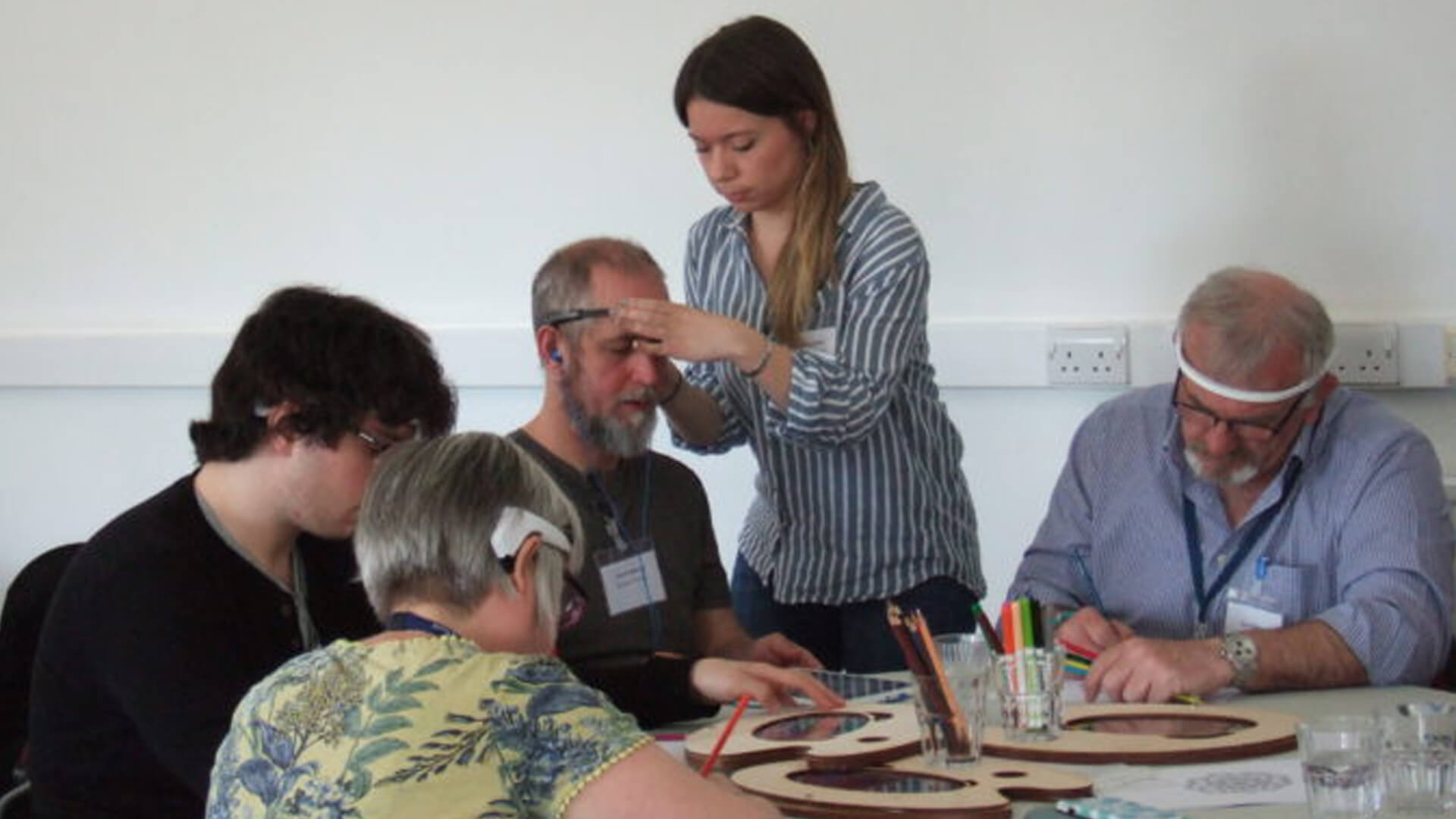
Members of the public and healthcare professionals have tried out innovative wearables technologies for mental health being developed as part of the AffecTech project.
They were able to test the cutting-edge technologies at a special event in Lancaster, UK held to mark Mental Health Awareness Week.
The public engagement event was organised by the Lancaster University team of the AffecTech project – a four-year research initiative that’s developing new digital tools to help people with depression, anxiety and bipolar.
Attendees included professionals from the health and technology sectors, as well as leading mental health charities such as Mind and Anxiety UK.
“This was an enjoyable opportunity for public and professionals to learn more about, and have hands-on experience of new wearable technologies for mental health that we are developing here in Lancaster,” said Corina Sas, Professor of Digital Health at Lancaster University, who also leads the AffecTech project.
Professor Sas said: “Affective disorders, such as stress, depression and bipolar conditions, are estimated to be among the highest ranking causes of disease by 2020. The potential social impact of wearable health devices for people with these disorders is vast because emotional awareness and regulation are invaluable for daily functioning.
“Our project marks a significant shift from current wearable technologies that capture emotional responses that then need interpreting by health professionals, towards low-cost self-help technologies for visualising, exploring and regulating emotions that people may be able to use in their daily lives.”
Coordinated by Lancaster University, the AffecTech project contributes cutting-edge research and development into wearable systems for emotion regulation.
The international project has been gathering momentum, with its research recognised at the prestigious CHI 2019 Human-Computer Interaction Conference, and Designing Interactive Systems DIS 2019 Conference:
Exploring and Designing for Memory Impairments in Depression
http://eprints.lancs.ac.uk/130241/1/Qu_accepted_CHI_19.pdf
https://doi.org/10.1145/3290605.3300740
HCI and Affective Health: Taking stock of a decade of studies and charting future research directions
http://eprints.lancs.ac.uk/130240/1/hci_affective_health.pdf
https://doi.org/10.1145/3290605.3300475
Dynamic Displays at Wrist for Real Time Visualization of Affective Data
http://eprints.lancs.ac.uk/124394/1/DIS_WIP_FINAL.pdf
https://doi.org/10.1145/3197391.3205436
Towards Affective Chronometry: Exploring smart materials and actuators for real-time representations of changes in arousal http://eprints.lancs.ac.uk/132485/1/DIS_Camera_Ready_Final.pdf
The former explores how innovations in personal health technologies could release sufferers from the torment of depression, by logging positive memories and combating memory impairments.
For more information visit: www.affectech.org


















